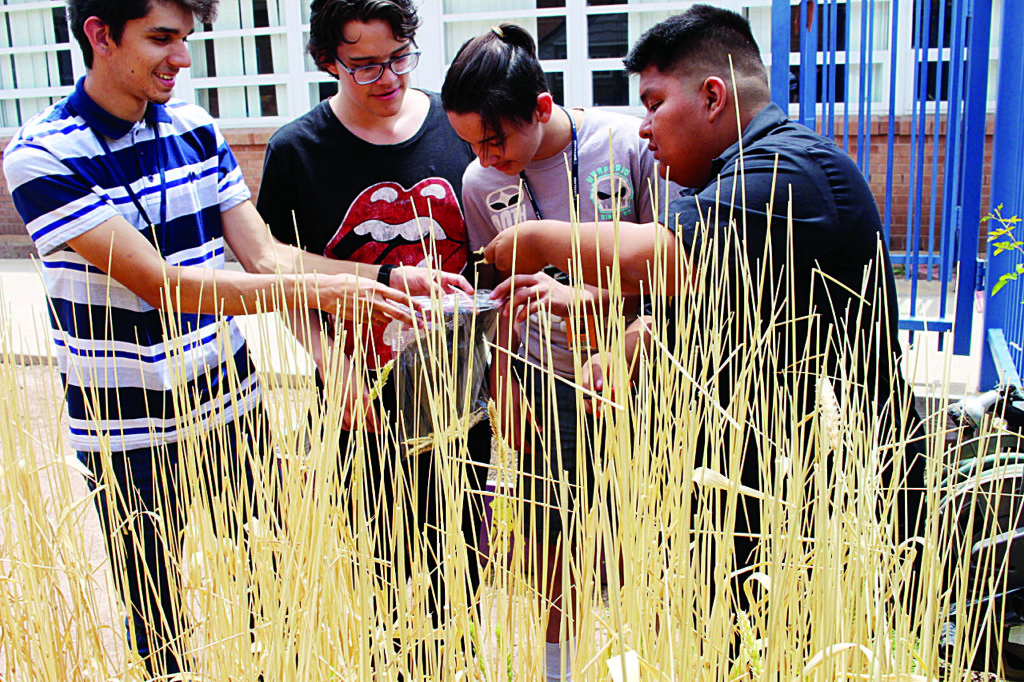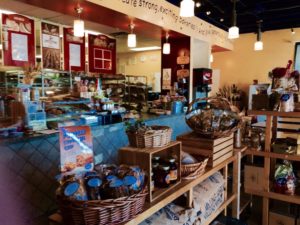
By Noah Kutz
Not everyone has the opportunity to watch their food grow from seedlings in the garden to veggies on the plate. For Tempe High School Special Education students, it’s an experience they can have every day.
What started as an attempt to enlarge the space for the Special Ed program at the school turned into a fully functioning garden patio, complete with tomatoes, peppers, peas, various flowers and —as unlikely for Arizona as it may seem—wheat.
Though wheat is rarely the first crop average Arizonans think to plant in their desert garden beds, for these students the challenge became bountiful. Tall, yellow-ish stalks quickly began sprouting from every square inch of the rectangular garden after the students sowed the seeds themselves earlier in the year.
The amount of wheat required to make enough bread for the class would most likely take the entirety of the garden space at the school, but according to Great Harvest Bread Company, the students may have just enough for a small loaf.
The Walston family from the long-familiar bakery agreed to aid the Special Ed staff in showing the students the process of making bread, from stalk to sandwich.
Despite this fun outcome from the garden at Tempe High, the food production serves more than one purpose.
“For the students I teach, this whole area became their kind of safe space around campus,” said Jennifer Laurence, the school’s special ed instructor.
“Nobody else is allowed in this area, so if they’re having a rough day or they need a place to talk and think things over, they can come out here and they know that they can sit by themselves or find the right person.”

The patio sits in the heart of the school’s campus, and remains closed to any students who are not in the Special Education program unless given prior permission.
According to staff, the garden provides an opportunity for the students to not only recuperate from their day-to-day lives, but also serves as a fun learning tool throughout each season.
“We’ve been able to use a little bit of science in it, too,” noted Michael Warner, a robotics team faculty adviser who also assists the special ed staff.
In one case, he recalls, he inadvertently used pea plants from separate garden beds to teach the students about the effects of soil fertility and how certain plants may grow differently depending on what was planted before.
The result: a disappointingly modest yield of wheat.
Thanks to the lessons class members have gained through their garden experience, as well as the knowledge and devotion of the special ed staff, it seems likely that education in one form or another likely is being sown in each student at Tempe High School, no matter their circumstance.

